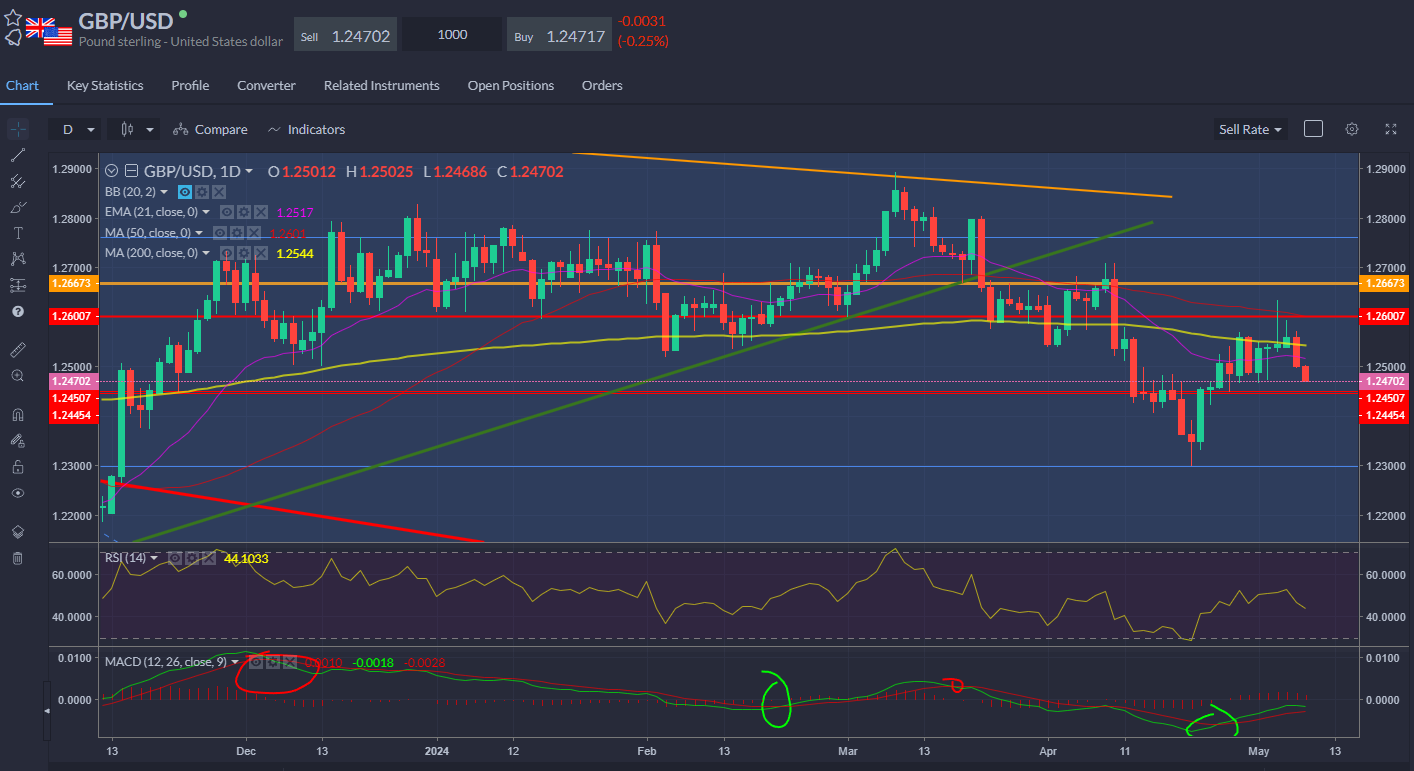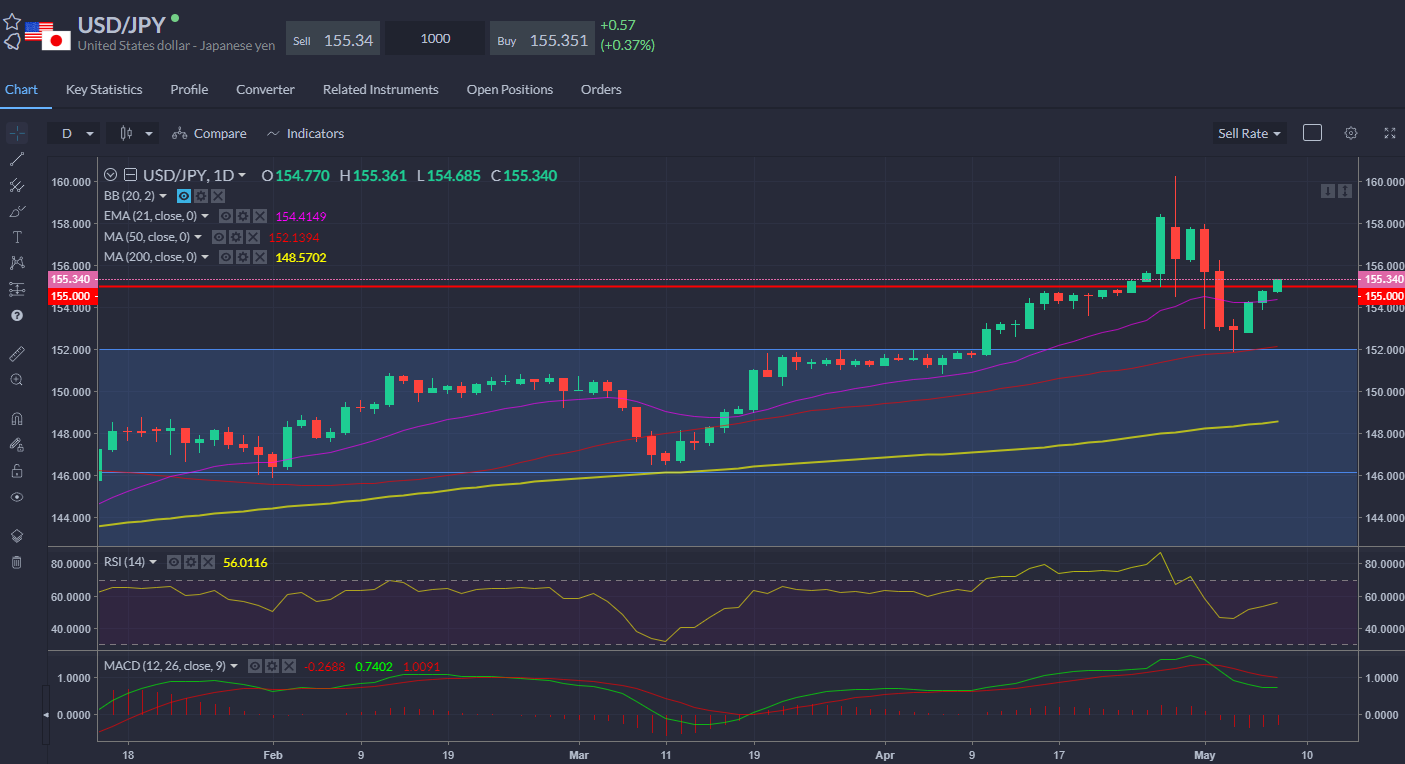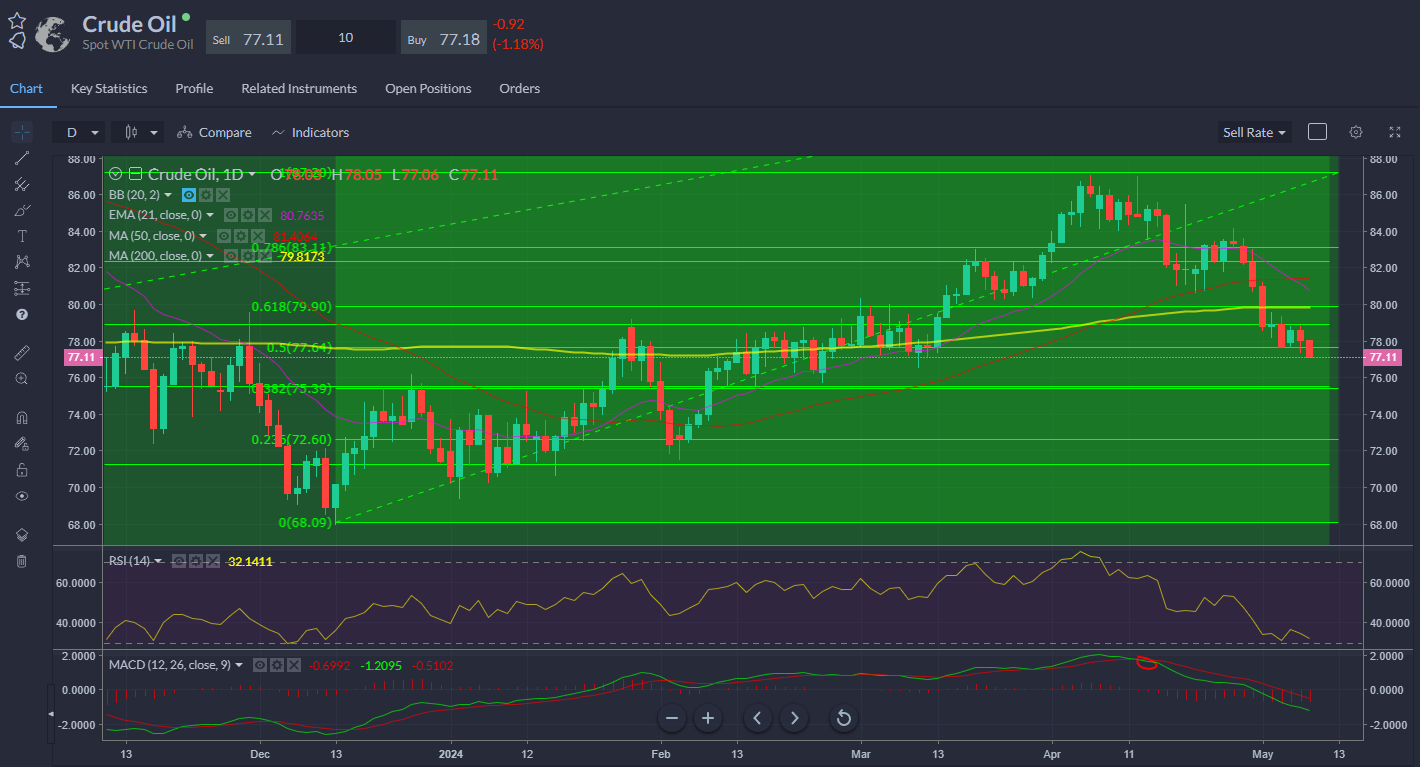European stock markets rose again early Wednesday to add to gains of around one percent on Tuesday as financials boosted the mainland indices. The FTSE 100 added another half a percent for a fresh record above 8,350, whilst gilt yields fell further ahead of the Bank of England decision tomorrow, pushing utilities higher. Sterling trades lower against the dollar with traders cementing bets on the BoE moving faster than the Fed with cuts – 2 cuts this year is expected. Wall Street was essentially flat on Tuesday. Asian shares were mixed with Tokyo down 1.5% despite the weaker yen, which has fallen for three straight days as the market moves to retest the BoJ’s resolve.
In fact there was some pretty hawkish noises coming from one FOMC member. “With inflation in the most recent quarter moving sideways, it raises questions about how restrictive policy really is,” said Neel Kashkari, president of the Minneapolis Fed. Rates would stay high for an “extended period”, he added.
Why is inflation so sticky?
Lots of factors of course – inherently it’s difficult to push the toothpaste back in the tube. But there are other factors that are maybe particular to this cycle due to the unique monetary and fiscal response to the pandemic. JPM notes that the US consumer wealth “has increased ~$37T, or +33.6%, since the beginning of 2020, including $5T in realized capital gains from 2020 – 2022. Those capital gains, even if taxed at 37%, means that [Fed models] are undercounting Consumer cash levels by at least $3T. .. if an investor is using the Excess Savings metric, it gives a false sense that the US Consumer is on the precipice of rolling over.”
Consumers are loaded and the Treasury is injecting yet more with layers of debt: $1tn every 100 days and debt interest payments are now in excess of $1tn.
Legendary investor Stan Druckenmiller on “Bidenomics” and the current government deficit: “If I was a professor, I’d give him an F. Treasury is still spending like we’re in a depression. We have 7% budget deficits at full employment, it’s unheard of.”
Back to Britain and gilt yields have dropped sharply this week as traders returned from the Monday bank holiday. Indeed here’s one good reason to cut: Treasury Select Committee report on finance for SMEs found a 'difficult environment' where, as the Chair put it, 'bank and regulators are making a tough world needlessly tougher'. Cutting rates could help. GBP/USD has dropped back from above 1.26 to below 1.25.
Meanwhile, the Bank of Japan is supposed to be going in the other direction and raising rates, but the market has sniffed out that it doesn’t really want to, resulting in pronounced yen weakness and wild gyrations in JPY crosses. BoJ governor Ueda told parliament 'We need to be mindful of the risk that the impact of currency volatility on inflation is becoming bigger than in the past, there's a chance we may need to respond with monetary policy.”
German industrial production declined in March, down by 0.4% compared to the previous month, following the 1.7% rise in February. Just adds to the sense that the ECB is a surefire to cut in June. 
Crude oil trades at a two-month low as traders eye a potential ceasefire in the Middle East. What’s underpriced by the market is some unclenching in commodities more generally as Ukraine and Russia move inevitably towards an armistice.
